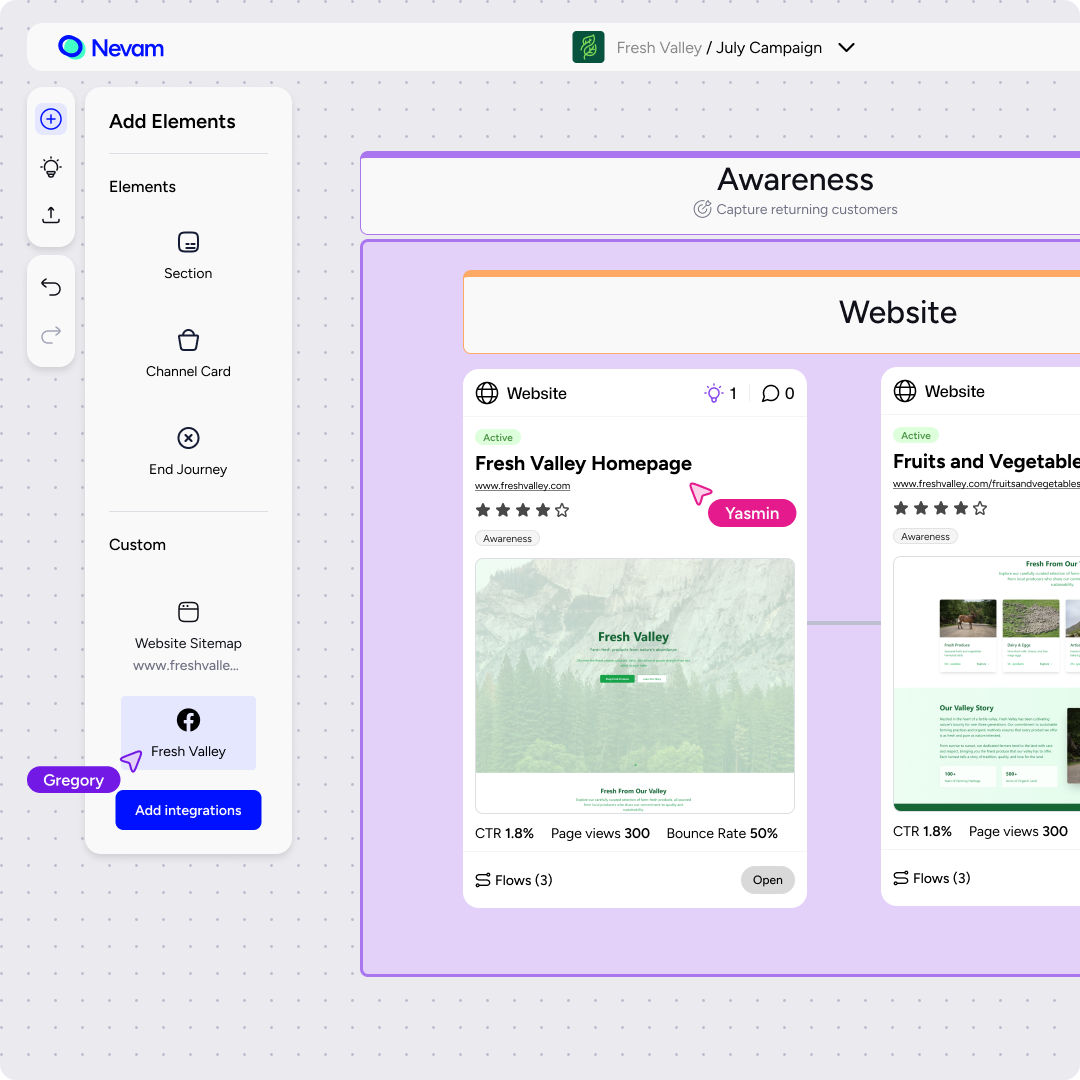CX Leaders have been forced
to work on boards like this...








Manual Journey Maps
Manual CX journey mapping tools are time-consuming, static, and unable to update in real-time. They often rely on biased user feedback, lack granularity, and fail to drill down into actionable next steps. Additionally, they struggle with scalability, integration, and consistency, ultimately requiring significant resources and leading to fragmented insights.
Service Blueprints
Service blueprints focus on process mapping from the orchestration perspective, highlighting only the milestones that trigger backend behaviours. They overlook the detailed micro-activities that customers see and have to perform, leading to a limited understanding of the actual customer experience. This narrow focus can result in missing critical touchpoints and interactions, ultimately failing to capture the full scope of the customer journey.


Static Reports
Siloed reports offer deliverables that are hard to follow and even harder to action. By the time issues are identified, it's often too late to address them effectively, resulting in missed opportunities for enhancing the customer journey and delivering exceptional service.
Not anymore.

End-to-End view across every channel and all content

Inspect Journeys in detail including every pathway provided.

Find Insights, optimizations and business cases

Create recommendations and ideas to uplift for collaboration and prioritisation. Linked directly to its location and data for easy business case creation.

Assign and execute in own channels using jira syncs, so development teams don't have to update, its all there in one place.

Track bottle necks, efficiencies, KPI's and know exectly what moves the dial.